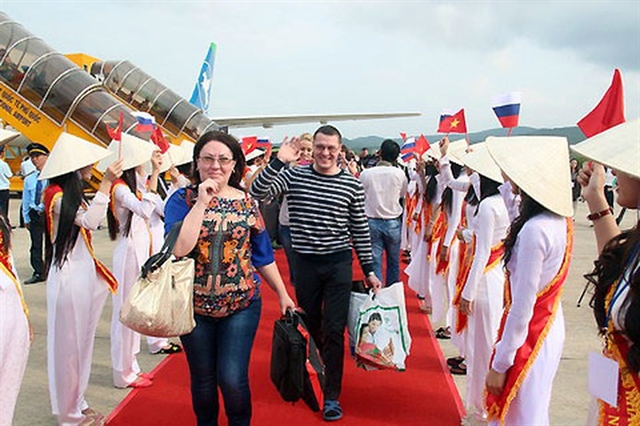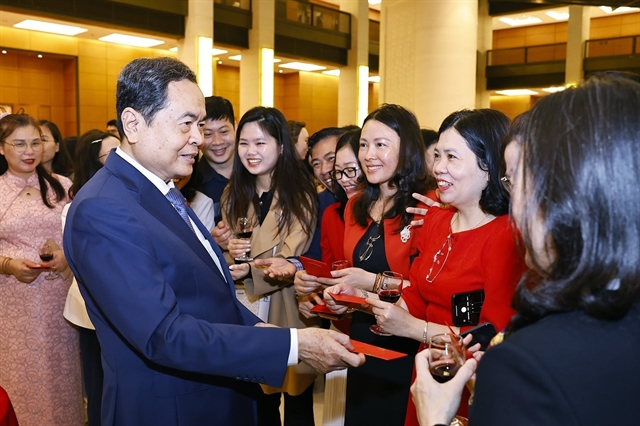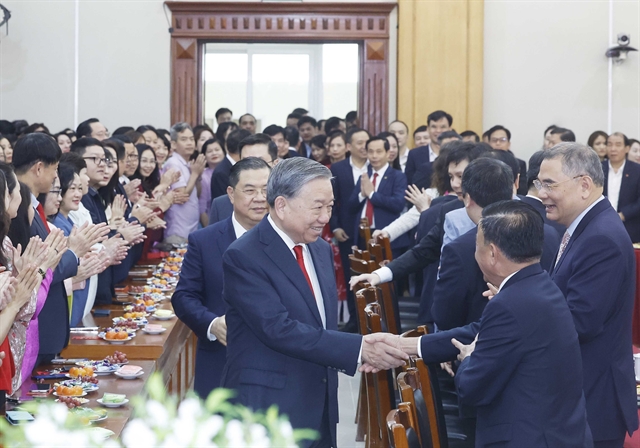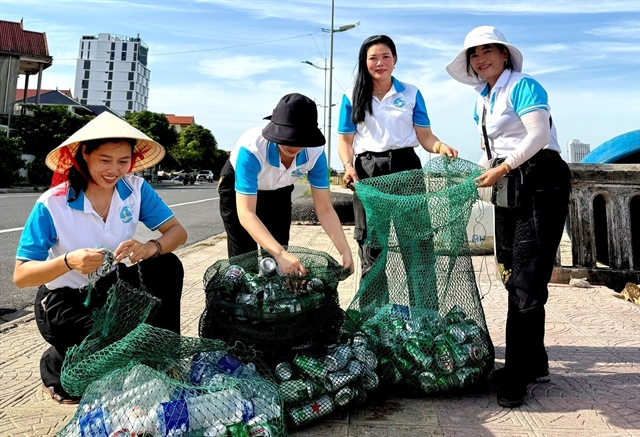 Environment
Environment
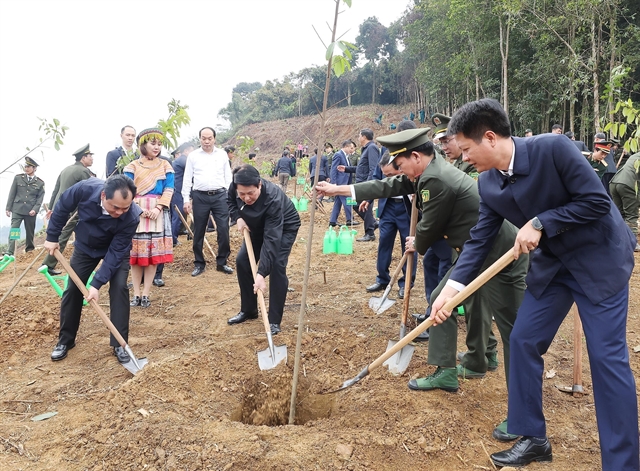
Thousands of private clinics in HCM City have to comply with a new regulation on medical waste collection introduced earlier this month, reported Thanh Niên (Young People) Newspaper.
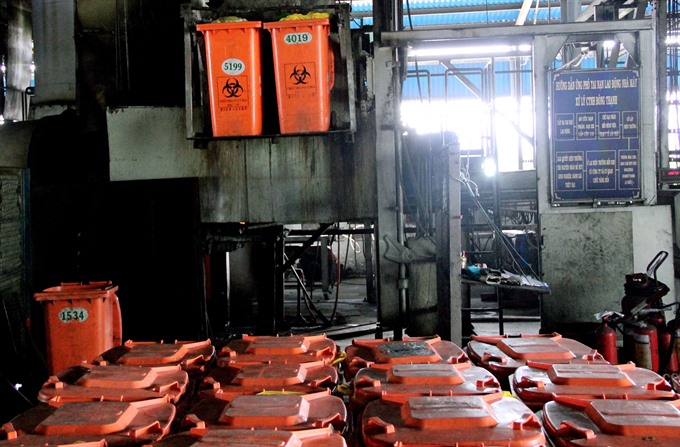 |
| An automatic hazardous waste treatment chain at the HCM One-Member Limited Urban Environment Company. – VNA/VNS Photo Xuân Dự |
HCM CITY – Thousands of private clinics in HCM City have to comply with a new regulation on medical waste collection introduced earlier this month, reported Thanh Niên (Young People) newspaper.
Clinics will be charged almost double for every kilo of medical waste they discharge beyond the 10-kg limit.
The regulation was introduced by HCMC One-member Limited Urban Environment company – a waste management and treatment company in the city.
The clinics will have to pay VNĐ510,000 (US$22.3) for the first ten kilogrammes of waste, and a further VNĐ11,000 ($0.48) for every kilo beyond that.
Moreover, each clinic has to pay an advance of VNĐ3.570,000 ($154) for the first ten kilos of waste for 7 months from June to December.
“The company asked us to pay fees for excessive amounts of waste, but they didn’t mention paying back money in case we discharge less than 10 kilos of waste,” doctor Bùi Yên Trình, owner of a clinic in District 10, told the paper.
“Under the new regulation, waste collection fees will be collected once every seven months. Before, the fees were paid every month. I don’t know why the company changed the terms of fee collecting,” the doctor said.
The owner of a private clinic in Bình Thạnh District told the paper that “this was the first time I heard about the regulation.”
“Notably, only private clinics were informed about the new regulation, so will public clinics also have to follow the regulation?
“This is a display of discrimination between private and public clinics in collecting medical waste,” he said.
According to private clinics’ owners, a fixed amount of 10kg waste for each private clinic is improper.
Doctor Trình said the scale of waste in different clinics varies a lot. Some clinics have short working hours and fewer patients so they only discharge a small amount of medical waste.
“My clinic discharges about 1 or 2 kg of medical waste every month. So fixing 10kg of waste a month for my clinic is not appropriate,” doctor Trình said.
Improper regulation
In fact, many private clinics only discharge a few kilos of waste every month, about one-third of the fixed amount, but still have to pay for 10kg.
Five hundred private clinics in District 10 had to pay a combined VNĐ1.8 billion ($79,000) a month for the fixed waste amount, let alone the excessive waste, according to the newspaper.
The fees for medical waste collecting of a total 6,100 private clinics in the city would be more than VNĐ3 billion ($132,000) a month.
So far there is no legal document regulating the fees of collecting and treating medical waste like the Citrenco’s regulation.
Besides, regulations on weighing medical waste do not account for the dangers to the clinics’ staff when collecting medical waste.
“Medical waste contains many diseases which could spread out, so collecting and treating the waste requires a strictly controlled process,” said environment expert Phan Văn Hiện.
The expert warned that the regulation of weighing the medical waste at private clinics might be counteracting with environment protection and toxic waste treatment.
It was because clinics could put the medical waste into domestic waste bins to avoid paying fees for excessive weights of medical waste, the expert said.
An agency who was in charge of controlling medical waste must give instructions to waste collection companies in levying fees”, Hiện told the paper.
Vice President of HCM City Lawyers’ Association Nguyễn Văn Hậu said fixing the amount of medical waste for clinics and collecting money seven months in advance is unreasonable.
“This is against the principles of civil contracts,” he said
Besides, collecting and treating medical waste should be a public utility service, Hậu said. – VNS

.jpg)
